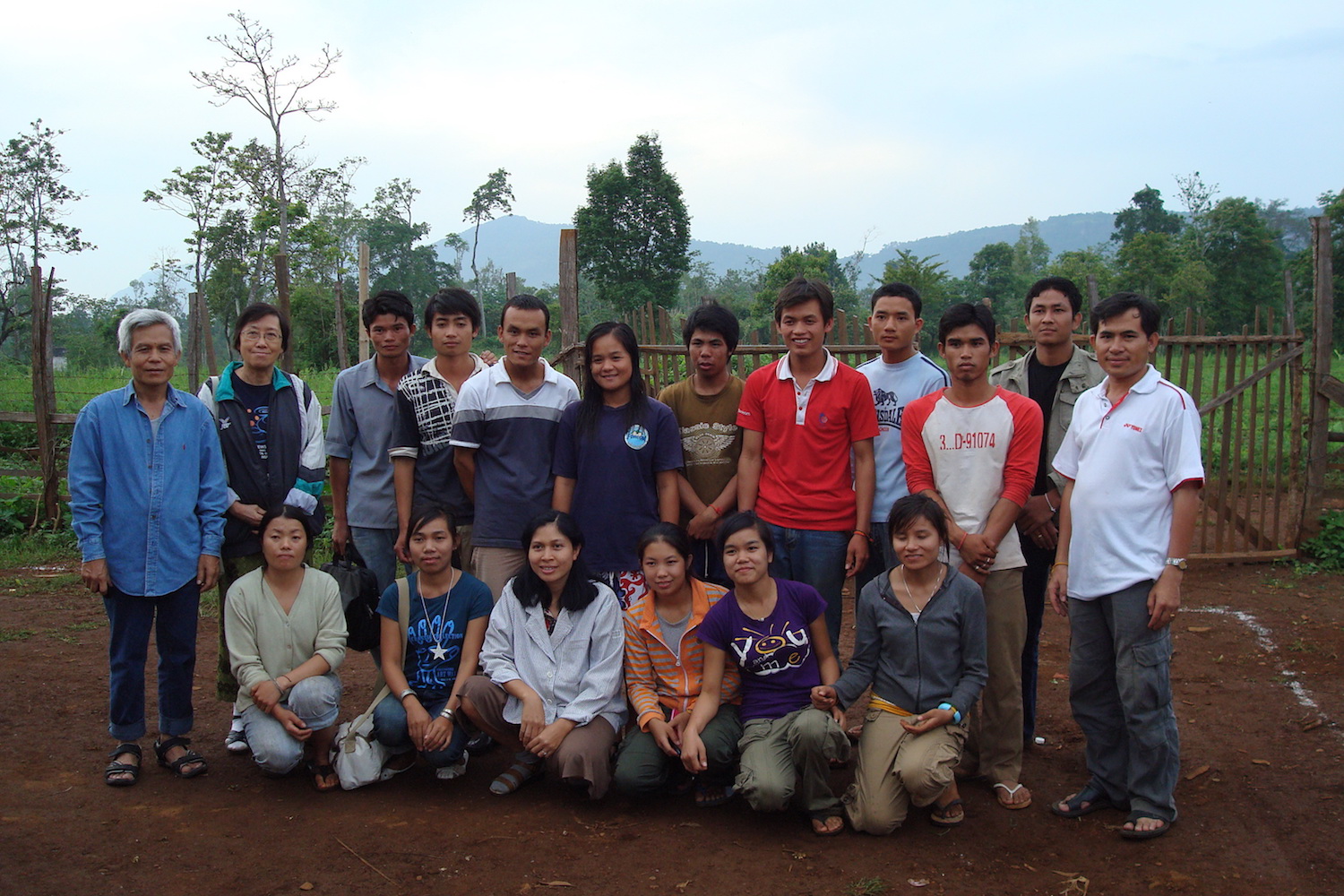Radio Free Asia: 17 December 2019

The wife of a missing Lao activist told a gathering to mark seven years since his disappearance that she has not heard any information from Lao authorities about his case in more than two years and believes they “stopped searching long ago.”
Sombath Somphone, who disappeared on Dec. 15, 2012—exactly seven years ago Sunday—when police stopped him in his vehicle at a checkpoint on the outskirts of the capital Vientiane.
Before his abduction, Sombath had challenged massive land deals negotiated by the government that had left thousands of rural Lao villagers homeless with little paid in compensation. The deals sparked rare popular protests in Laos, where political speech is tightly controlled.
Though authorities have denied any responsibility, Sombath’s abduction is widely acknowledged to be an enforced disappearance.
Sombath’s wife, Singaporean Ng Shui Meng, said Lao authorities have made no headway in the case in years.
“After seven years, there has been no progress in the investigation of Sombath, absolutely nothing. The Lao authorities have not provided any help and any information,” she said at a news conference in Bangkok to mark the anniversary.
“The last time I met with them was on November 21, 2017. They met with me at that time because the Singaporean embassy pressured them to meet with me. They just told me that they don’t know, they don’t see, they’re still investigating,” she added.
Ng called upon the Lao people abroad and members of the international community to help and support her ongoing search for answers.
Tuesday’s news conference was also attended by other families affected by enforced disappearances and rights activists, including Phil Robertson of Human Rights Watch, who said enforced disappearances were “crimes that shattered [victims’] families and shattered their lives,”
“Unfortunately both Thailand and Laos have continually used enforced disappearance,” Robertson said.
The press conference followed a family event on Sunday on the actual seventh anniversary of Sombath’s disappearance.
Sombath’s family participated in a Buddhist ceremony at a temple in Vientiane.
Ng told RFA the next day that the quiet ceremony was attended by several diplomats, and representatives of NGOs and CSOs.
She told RFA that it makes little sense that Laos would be incapable of finding her husband.
“Laos is not a big country; Vientiane is not a big city. If they wanted to, they [could check] CCTV footage and other evidence,” she said.
“They have been successful in finding many things, if they are willing to. They are very good in security. They have many spies in every village. They have a very good monitoring system,” she added.
“So why would they not be able to search for Sombath? They can even search for a cow, if it’s missing. I believe 100 percent that they can solve this case easily because you cannot hide or keep anything a secret in Laos.”
When asked how she felt after seven years apart from her husband, she responded, “I have to be strong. I can’t do anything else. I can only ask the authorities to actually search and solve the case.”
“The answer is in their hands. The upper leadership knows what happened, but they don’t want to talk, or speak or release any information. They only say they don’t know, they didn’t see it, they are still investigating. Actually, they stopped searching years ago,” said Ng.
Rights groups urge Laos to come forward with information
Meanwhile a total of 88 rights groups released a joint statement saying that an independent body should be established to investigate forced disappearance cases.
Dr. Bounthone Chanthalavong-Weiser, president of the Alliance for Democracy in Laos, blamed the Lao government for these disappearances.
“On the occasion of the seventh anniversary of the disappearance of Sombath Somphone, we, the Alliance for Democracy in Laos, would like to express our sadness and concerns over the disappearance,” she said in a statement to RFA.
“This prominent development worker is a Magsaysay Award receiver teaching our children about sustainable development and protection of our nature. He will remain in our heart forever.”
For his activism, Sombath won the U.N.’s Human Resource Development Award for empowering the rural poor in Laos, and later the prestigious Ramon Magsaysay Award for Community Leadership.

